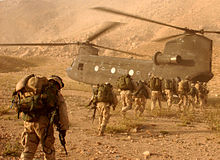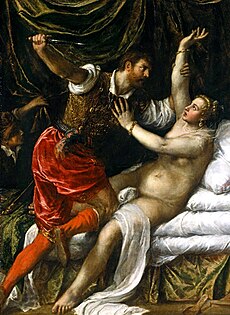
The 9/11 attacks had immediate and overwhelming effects upon the American people. Police and rescue workers from around the country took leaves of absence, traveling to New York City to help recover bodies from the twisted remnants of the Twin Towers. Blood donations across the U.S. surged in the weeks after 9/11.
The deaths of adults who were killed in the attacks or died in rescue operations resulted in over 3000 children losing a parent. Subsequent studies regarding children's reactions to these actual losses and also to feared losses of life, and the protective environment in the aftermath of the attacks were documented, as were the effects on surviving caregivers.
For the first time in history SCATANA was invoked, establishing an ATC Zero condition, closing all airspace and immediately grounding all non-emergency civilian aircraft in the United States, Canada, and several other countries, and so stranding tens of thousands of passengers across the world. The Federal Aviation Administration closed American airspace to all international flights, causing about five hundred flights to be turned back or redirected to other countries. Canada received 226 of the diverted flights and launched Operation Yellow Ribbon to deal with the large numbers of grounded planes and stranded passengers.
Military operations following the attacks

At 2:40 p.m. in the afternoon of September 11, Secretary of Defense Donald Rumsfeld was issuing rapid orders to his aides to look for evidence of Iraqi involvement. According to notes taken by senior policy official Stephen Cambone, Rumsfeld asked for, "Best info fast. Judge whether good enough hit S.H." (Saddam Hussein) "at same time. Not only UBL" (Osama bin Laden). Cambone's notes quoted Rumsfeld as saying, "Need to move swiftly – Near term target needs – go massive – sweep it all up. Things related and not."
The NATO council declared the attacks on the United States were an attack on all NATO nations which satisfied Article 5 of the NATO charter. This marked the first invocation of Article 5, which had been written during the Cold War with an attack by the Soviet Union in mind. Australian Prime Minister John Howard invoked Article IV of the ANZUS treaty. The Bush administration announced a War on Terror, with the stated goals of bringing bin Laden and al-Qaeda to justice and preventing the emergence of other terrorist networks. These goals would be accomplished by imposing economic and military sanctions against states perceived as harboring terrorists, and increasing global surveillance and intelligence sharing.
On October 7, 2001, the War in Afghanistan began when U.S and British forces initiated aerial bombing campaigns targeting Taliban and Al-Qaeda camps, then later invaded Afghanistan with ground troops of the Special Forces. The overthrow of the Taliban rule of Afghanistan by a U.S.-led coalition was the second-biggest operation of the U.S. Global War on Terrorism outside of the United States, and the largest directly connected to terrorism. Conflict in Afghanistan between the Taliban insurgency and the ISAF is ongoing. The Philippines and Indonesia, among other nations with their own internal conflicts with Islamic terrorism, also increased their military readiness.
Domestic response

Following the attacks, President Bush's approval rating soared to 90%. On September 20, 2001 he addressed the nation and a joint session of the United States Congress regarding the events of September 11 and the subsequent nine days of rescue and recovery efforts, and described his intended response to the attacks. New York City mayor Rudy Giuliani's highly visible role won him high praise in New York and nationally.
Many relief funds were immediately set up to assist victims of the attacks, with the task of providing financial assistance to the survivors of the attacks and to the families of victims. By the deadline for victim's compensation on September 11, 2003, 2,833 applications had been received from the families of those who were killed.
Contingency plans for the continuity of government and the evacuation of leaders were also implemented almost immediately after the attacks. However, Congress was not told that the United States had been under a continuity of government status until February 2002.The United States enacted the Homeland Security Act of 2002, creating the Department of Homeland Security, representing the largest restructuring of the U.S. government in contemporary history. Congress also passed the USA PATRIOT Act, stating that it would help detect and prosecute terrorism and other crimes. Civil liberties groups have criticized the PATRIOT Act, believing that it allows law enforcement to invade the privacy of citizens and that it eliminates judicial oversight of law enforcement and domestic intelligence. In an effort to effectively combat future acts of terrorism, the National Security Agency (NSA) was given broad powers. NSA commenced warrantless surveillance of telecommunications which was sometimes criticized since they were permitted, "to eavesdrop on telephone and e-mail communications between the United States and people overseas without a warrant".
Hate crimes
Numerous incidents of harassment and hate crimes against Muslims and southeast Asians were reported in the days following the 9/11 attacks. Sikhs were also targeted because Sikh males usually wear turbans, which are stereotypically associated with Muslims. There were reports of verbal abuse, attacks on mosques and other religious buildings (including the firebombing of a Hindu temple), and assaults on people, including one murder: Balbir Singh Sodhi, a Sikh mistaken for a Muslim, was fatally shot on September 15, 2001 in Mesa, Arizona.
According to an academic study, people perceived to be Middle Eastern were as likely to be victims of hate crimes as followers of Islam during this time. The study also found a similar increase in hate crimes against people who may have been perceived as Muslims, Arabs and others thought to be of Middle Eastern origin. A report by the South Asian American advocacy group known as South Asian Americans Leading Together, documented media coverage of 645 bias incidents against Americans of South Asian or Middle Eastern descent between September 11 and September 17. Various crimes such as vandalism, arson, assault, shootings, harassment, and threats in numerous places were documented.
Muslim American reaction
Muslim organizations in the United States were swift to condemn the attacks and called, "upon Muslim Americans to come forward with their skills and resources to help alleviate the sufferings of the affected people and their families". These organizations included the Islamic Society of North America, American Muslim Alliance, American Muslim Council, Council on American-Islamic Relations, Islamic Circle of North America, and the Shari'a Scholars Association of North America. Along with monetary donations, many Islamic organizations launched blood drives and provided medical assistance, food, and shelter for victims.
International response
The attacks were denounced by mass media and governments worldwide. Across the globe, nations offered pro-American support and solidarity. Leaders in most Middle Eastern countries, and Afghanistan, condemned the attacks. Iraq was a notable exception, with an immediate official statement that, "the American cowboys are reaping the fruit of their crimes against humanity". While the government of Saudi Arabia officially condemned the attacks, privately many Saudis favored bin Laden's cause. As in the United States, the aftermath of the attacks saw tensions increase in other countries between Muslims and non-Muslims.
United Nations Security Council Resolution 1368 condemned the attacks, and expressed readiness to take all necessary steps to respond and combat all forms of terrorism in accordance with their Charter. Numerous countries introduced anti-terrorism legislation and froze bank accounts they suspected of al-Qaeda ties. Law enforcement and intelligence agencies in a number of countries arrested alleged terrorists.
Tens of thousands of people attempted to flee Afghanistan following the attacks, fearing a response by the United States. Pakistan, already home to many refugees from previous conflicts, closed its border with Afghanistan on September 17, 2001. Approximately one month after the attacks, the United States led a broad coalition of international forces to overthrow the Taliban regime from Afghanistan for their harboring of al-Qaeda. Though Pakistani authorities were initially reluctant to aligned themselves with the United States against the Taliban, they permitted the coalition access to their military bases, and arrested and handed over to the U.S. over 600 suspected al-Qaeda members.
The U.S. set up the Guantanamo Bay detention camp to hold inmates they defined as, "illegal enemy combatants". The legitimacy of these detentions has been questioned.